Search Images
Browse Content (p. 1322)

Image
Principal Features of a Hindu Temple Complex
A diagram illustrating the principal features of a Hindu temple complex.
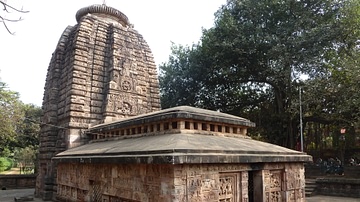
Image
Parasurameswar Temple
The Hindu Parasurameswar temple, Bhubaneswar, Orissa, India. 7th century CE.
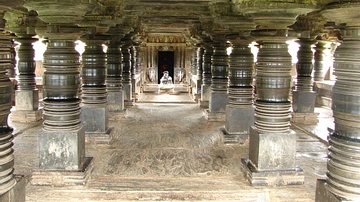
Image
Mandapa, Amritheswara temple
The mandapa or columned hall of the Amritheswara temple in Amrithapura, Chikkamagaluru district, Karnataka state, India.
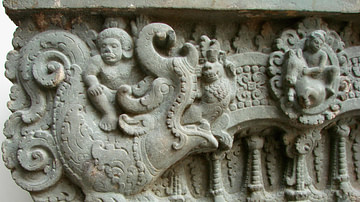
Image
Makara, Cambodia
A makara, the decorative sea-monster motif common in Hindu architecture, especially, as here, above doorways. Cambodia, 1st-7th century.
Musée Guimet, Paris.
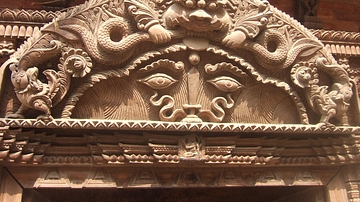
Image
Kirtimukha, Nepal
A Kirtimukha from Kathmandu, Nepal, a decorative lion or monster motif with the lower jaw missing, typically placed over doorways in Hindu architecture.
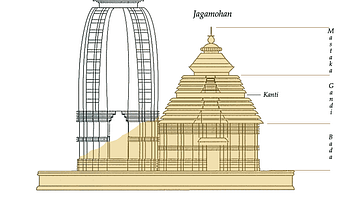
Image
Surviving Jagamohana of the Konark Sun Temple, Orissa
An illustration indicating the original design of the Konark Sun Temple in Orissa, India. 13th century CE.
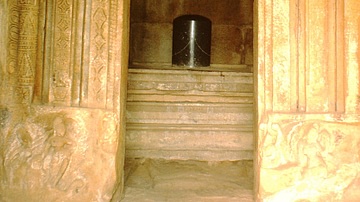
Image
Garbhagriha, Pattadakal
The garbhagriha (garbha grha) inner sanctum of a Shiva temple at Pattadakal.
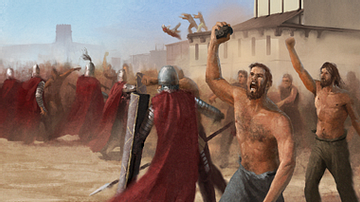
Image
Street Riot
An artist's impression of what an ancient riot may have looked like such as were under the jurisdiction of the cohortes urbanae to control in ancient Rome.

Image
Attacking the Cohortes Urbanae
An artist's impression of what a night attack on a Roman guard post may have looked like.
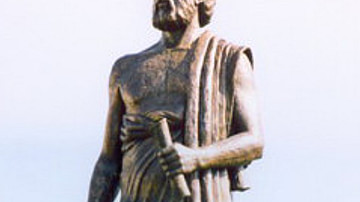
Image
Aristarchus of Samos
A modern statue in Thessaloniki depicting the Greek mathematician and astronomer Aristarchus of Samos (c. 310 - c. 230 BCE).